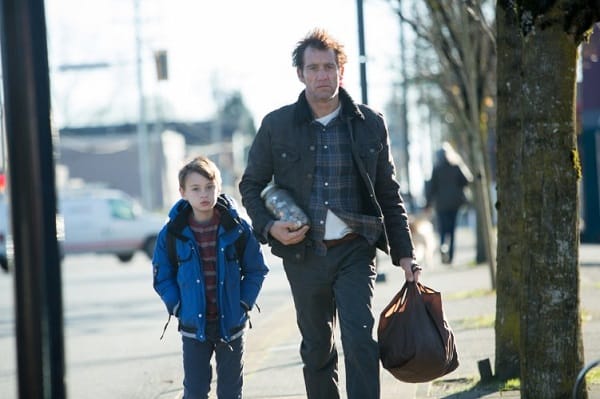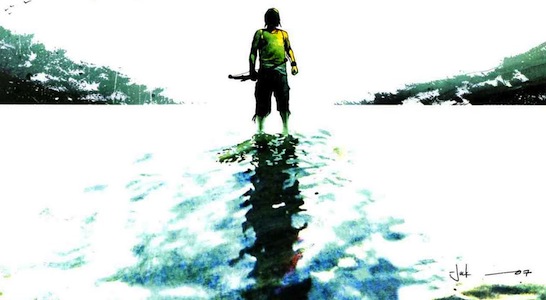Opening with a bit of a historic snooze fest yet also offering greatness… While costumes and pictures of opening film Les Adieux à la Reine (Farewell My Queen) by Benoït Jacquot were absolutely stunning the story itself was more on the boring side. The film focuses on Léa Seydoux as Sidonie Laborde, Queen Marie Antoinette’s (Diane Krüger) reader, during the days of the French Revolution. The director however is clearly more interested in his female protagonists’ shapes and an overall composed aesthetic than in actually constructing an engaging story; when the camera isn’t busy resting on mademoiselle Sydoux well-shaped breasts there is a lot of slow rushing through Versailles and very little story development going on. In a way it feels like everyone’s hurrying to get off the Titanic, except Versaille is a much more impressive set.
Frédéric Videau’s A Moi Seule (Coming Home) – also in competition – in contrast at least offered deeper sense of complexity. Gaëlle (Agathe Bonitzer) is captured as a little girl and grows up imprisoned. One day, almost a grown up, she finds herself set free and while this phsyical freedom seems like liberation the new found freedom bears a different kind of prison; after years of captivity everything that’s been established is being challenged. And while the film is an intense experience at some point it is dwelling too much in what caused the status quo than to inquire the truly interesting dynamics of Gaëlle and her parents having to deal with redefining everything and reestablishing intimacy without forcing it like Gaëlle’s kidnapper did before.
Perspektive Deutsches Kino and Panorama so far have felt much more like lucky numbers. Katarina Perters documentary Man For a Day opened the section and takes a great angle on gender discourse. The director accompanies women as they take a workshop with Dragking Dianne Torr discovering their inner men. Staying on an honest and humorous side away from too clichéd stereotypes Peters manages to pick up the dialogue far away from worn out questions of equality. And who doesn’t appreciate a new take on things? This was also one of the main reasons I was so amazed by Umut Dag’s Kuma. The film takes on the subject of the second wife. Fatma (Nihal G. Koldas) in the fear of dying of cancer is mainly concerned with how to provide for her family ab believes to have found the perfect solution in Ayse (Begüm Akkaya). Officially married to her son Hasan (Murathan Muslu) she can migrate to Austria, and be prepared to take on Fatma’s responsibilities. Yet the story takes a different turn after Fatma is healed but the husband of two and father to the family passes. Dag captures the development of this closely-knit female relationship and all other dynamics evolving around it in the family with an overwhelming accuracy and intensity. Interestingly enough Dag chooses to focus his film not on how the male suppresses the female but rather how the women take a leading part in this process, making sure the old traditions and believes of men are honored and respected. This strong debut convincingly shows and hides the right kind of moments and that is how Dag manages to walk the thin line between being boldly revealing and telling while only hinting at other things.
At last I want to mention one of the films that I have not completely formed an opinion of. Hot Boy Nổi Loạn và Câu Chuyện về Thằng Cười, Cô Gái Điếm và Con Vịt by Vu Ngoc Dang from Vietnam. The rather extensive title translates to as much as “The Hot Boy rebellion and the Story of Buddy Cuoi, a Prostitute and a Duck. ” Running under the English title Lost Paradise, I find myself wondering if this shortening was a good idea. While of course way too long, the old title does sum up what this film is about: love, homosexuality, prostitution and a duck in Vietnam (a very reduced yet accurate version of what actually happens in the story). A little unsure whether I liked the overall film and managed to find the right moments humorous (the music is definitely throwing you off at times), I can say that this is one of those films that need to be shown at festivals. It makes you realize the many different nuances national cinemas have to offer, and whether or not we manage to always understand it as intended, it is great to see that a film like this gets exposure and a big screen!
Merle Fischer
Visit the official website for the Berlinale Film Festival



